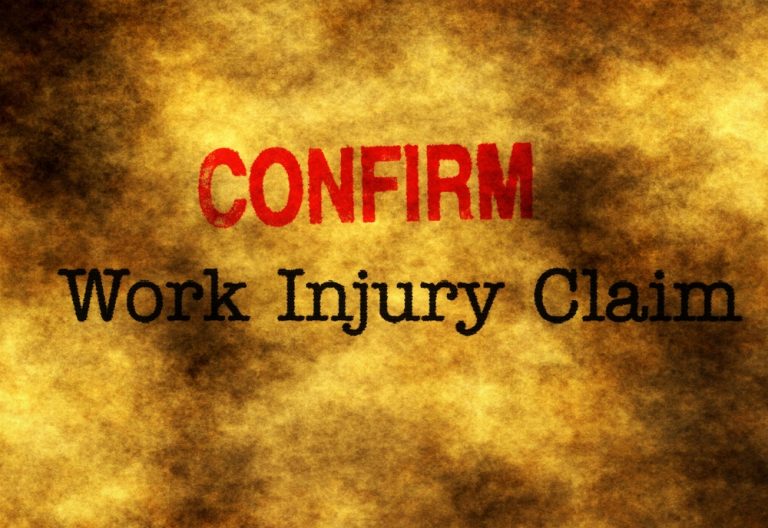California Workers’ Compensation Law provides for a special cancer presumption for certain Police and Safety members. This cancer presumption makes it easier for an individual to prove that their cancer illness is work-related. Once found work-related, an individual can obtain the entire array of benefits which include total temporary disability, medical care, permanent disability et al. The pertinent section Labor Code Section 3212.1
This section applies to all of the following:
(1) Active firefighting members, whether volunteers, partly paid, or fully paid, of all of the following fire departments:
A) A fire department of a city, county, city, and county, district, or other public or municipal corporation or political subdivision.
(B) A fire department of the University of California and California State University.
(C) The Department of Forestry and Fire Protection.
(D) A county forestry or firefighting department or unit.
(2) Active firefighting members of a fire department that serves a United States Department of Defense installation and who are certified by the Department of Defense as meeting its standards for firefighters.
(3) Active firefighting members of a fire department that serves a National Aeronautics and Space Administration installation and who adhere to the training standards established in accordance with Article 4 (commencing with Section 13155) of Chapter 1 of Part 2 of Division 12 of the Health and Safety Code.
(4) Peace officers, as defined in Section 830.1, subdivision (a) of Section 830.2, and subdivisions (a) and (b) of Section 830.37, of the Penal Code, who are primarily engaged in active law enforcement activities.
(5) (A) Fire and rescue services coordinators who work for the Office of Emergency Services.

(B) For purposes of this paragraph, “fire and rescue services coordinators” means coordinators with any of the following job classifications: coordinator, senior coordinator, or chief coordinator.
(b) The term “injury,” as used in this division, includes cancer, including leukemia, that develops or manifests itself during a period in which any member described in subdivision (a) is in the service of the department or unit, if the member demonstrates that he or she was exposed, while in the service of the department or unit, to a known carcinogen as defined by the International Agency for Research on Cancer, or as defined by the director.
(c) The compensation that is awarded for cancer shall include full hospital, surgical, medical treatment, disability indemnity, and death benefits, as provided by this division.
(d) Cancer so developing or manifesting itself in these cases shall be presumed to arise out of and in the course of the employment. This presumption is disputable and may be controverted by evidence that the primary site of cancer has been established and that the carcinogen to which the member has demonstrated exposure is not reasonably linked to disabling cancer. Unless so controverted, the appeals board is bound to find in accordance with the presumption. This presumption shall be extended to a member following termination of service for a period of three calendar months for each full year of the requisite service, but not to exceed 120 months in any circumstance, commencing with the last date actually worked in the specified capacity.
(e) The amendments to this section enacted during the 1999 portion of the 1999-2000 Regular Session shall be applied to claims for benefits filed or pending on or after January 1, 1997, including, but not limited to claims for benefits filed on or after that date that have previously been denied, or that are being appealed following denial.
(f) This section shall be known and may be cited, as the William Dallas Jones Cancer Presumption Act of 2010.”
If you are a Police or Safety member and believe that you are entitled to receive the presumption in your workers’ compensation case, there are a number of questions that will come up
Does the Cancer Presumption Apply To My Case?
If it is unclear you can initially contact your Department concerning this issue. Otherwise, you can consult an attorney for analysis.
Is the Date of The Development Of The Cancer Important?
The date that your cancer developed and is considered an injury is important. The date of injury can determine whether the presumption is applicable in your particular case.
The presumption is extended out based upon years of service. The presumption of injury can continue beyond the date of your termination of employment. It can extend an extra three months for each year of service and can extend up to 10 years. It should be noted that is the extension from the last date of actual work in the specified capacity.
Is My Work Exposure Important?
While in the service of the department or unit, exposure to a known carcinogen as defined by the International Agency for Research on Cancer, or as defined by the director, is of import. Exposure to a cancerous substance can be as simple as being exposed to gasoline, which is a known carcinogen.
What Type of Cancers Can Be Claimed?
There has been considerable litigation at the Workers’ Compensation Appeals Board. Over the years, a number of cancers have been found to be presumptive. Some of the cancers which have been found as presumptively industrial are as follows:
- Acute Myelogenous Leukemia
- Appendiceal Cancer
- Brain Tumor (Pineal Blastoma)
- Breast Cancer
- Colon Cancer
- Hodgkin’s Disease
- Kidney Cancer
- Lung Cancer
- Lymphoma
- Multiple Myeloma
- Non-Hodgkin’s Lymphoma
- Pancreatic
- Prostate
- Squamous Cell Carcinoma Of Tonsil And Lymph Nodes
- Stomach
- Thyroid
- Uterine
Can The Cancer Be Rebutted?
Case law has reported that to rebut the section 3212.1 presumption, the employer must show with a preponderance of substantial evidence the primary site of cancer and that the carcinogen to which the employee was exposed during employment was “not reasonably linked” to cancer.
(§ 3212.1; Garcia, supra, 126 Cal.App.4th at p. 316; Faust, supra, 68 Cal.Comp.Cases at p. 1831.)
The employer is not required to prove the absence of a link to a scientific certainty; showing no such connection is reasonable or can be logically inferred is sufficient,
(Garcia, supra, 126 Cal.App.4th at p. 316.)
The employer can rebut the presumption of section 3212.1 by showing that the period between the exposure to the carcinogen and manifestation of the cancer is not within the latency period of cancer.
(Garcia, supra, 126 Cal.App.4th at pp. 317–318; Faust, supra, 68 Cal.Comp.Cases at pp. 1831–1832.)
The employer can also show medical studies that a particular cancer is not caused by certain carcinogens, or that the quantity of carcinogen exposure or length of time is insufficient to [*13] have caused the detrimental effect.
(Garcia, supra, 126 Cal.App.4th at pp. 317–318)
The employer does not meet its burden of proof by merely showing that there are no studies which show a positive link between the carcinogen exposure and the particular form of cancer.
(Garcia, supra, 126 Cal.App.4th at p. 316; Faust, supra, 68 Cal.Comp.Cases at pp. 1831–1832.)
Concerning Your Workers’ Compensation Case

If you would like a free consultation concerning your workers’ compensation case, please contact the Law Offices of Edward J. Singer, a Professional Law Corporation. They have been helping people in Central and Southern California deal with their worker’s compensation cases for 14 years. Contact us today for more information.
